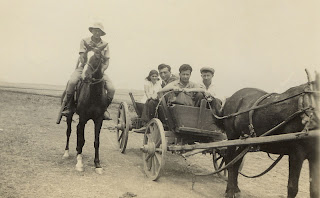 |
| Newt Gingrich - Gage Skidmore |
Newt Gingrich’s comment that the Palestinians are an “
invented people,” last week brings to mind dark memories for Jews as well.
Old stereotypes die hard, and so do political generalizations that serve only to rally votes. The Jewish people’s right and worthiness to claiming a nation for itself is continually being challenged, as is its right to return to a land that Jews have lived in for thousands of years.
Yet to be straight about Gingrich’s ill-timed remark, there is validity in his statement. All peoples and all nations are contrived. We are all invented peoples.
We all hail from the either the destruction of or the championing of political and cultural conquest. Whether we claim the United States, France, Japan, Spain or South Africa as our home, we all have been transformed by history and the migration of previous generations.
 |
| Bhutanese refugees in Beldangi Refugee Camp, Nepal - Alemaugil |
Does that mean then, that today’s North American Jews should not be able to claim a home anywhere but where their ancestors lived? And which ancestors do we turn to for validation? Those that lived within Judea, or those who created the Ashkenazi and Sephardic kingdoms that influenced contemporary Jewish tradition?
 |
| Jewish boy in a tallit, East Side New York, 1911 - Bain News Svc |
 |
| First Thanksgiving at Plymouth (1914) - Jennie A Brownscombe |
Does it mean that Christians have no place on the shores of the Americas, since their ancestors migrated from another continent?
Does it mean that only Jews and Muslims who can definitively trace their heritage to the ancient inhabitants of what is now Israel and the Palestinian Territories should be allowed to “return” to their homeland?
 |
| Pioneers in Israel, between 1930 and 1940 - PikiWiki Israel |
It is interesting that Gingrich feels that he must underscore Middle East conflict in order to win Jewish votes. The dispute was never really a question about the Palestinians’ legitimacy as a people, but whether Jewish Israelis would be allowed to live in peace with their neighbors.
Within its doctrine, Judaism accords recognition to all peoples, be they Jewish or not. Maimonides points out in Hilchot Melachim that the Jew is commanded “to visit the sick of the
stranger and to bury their dead with the dead of the Israelites … for the ways of peace (
mipnei darkhei shalom)”. The fact that they are non-Jewish strangers does not lessen our obligation to recognize them as neighbors.
Elie Wiesel builds on this point in his book From the Kingdom of Memory (Simon and Schuster, NY, 1990), with a story about the patriarch Abraham’s visit among strangers, by noting that there are several different words and meanings for “stranger” in Hebrew . Yet recognizing one as a stranger does not necessarily mean that he is outside of God’s protection. What determines that is not their status as a Jew or a non Jew, but their intent, and their actions.
 |
| Palestinian children - Tarek |
Events in history may set us apart from the
nochri, the stranger, but we are defined as much by their humanity, their needs and their legitimacy, as they are by ours. As Wiesel says, “Man needs the other to be human – just as God needs man to be God.” How we regard the stranger’s status says a lot about the importance we place in how others view our own.
 |
| Abraham Journeying Into the Land of the Canaan - Gustave Doré |








